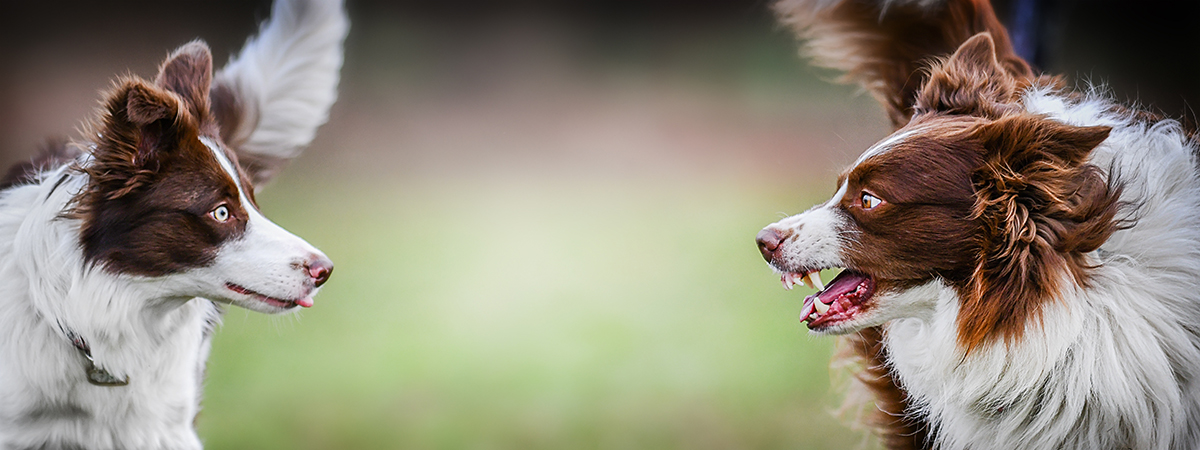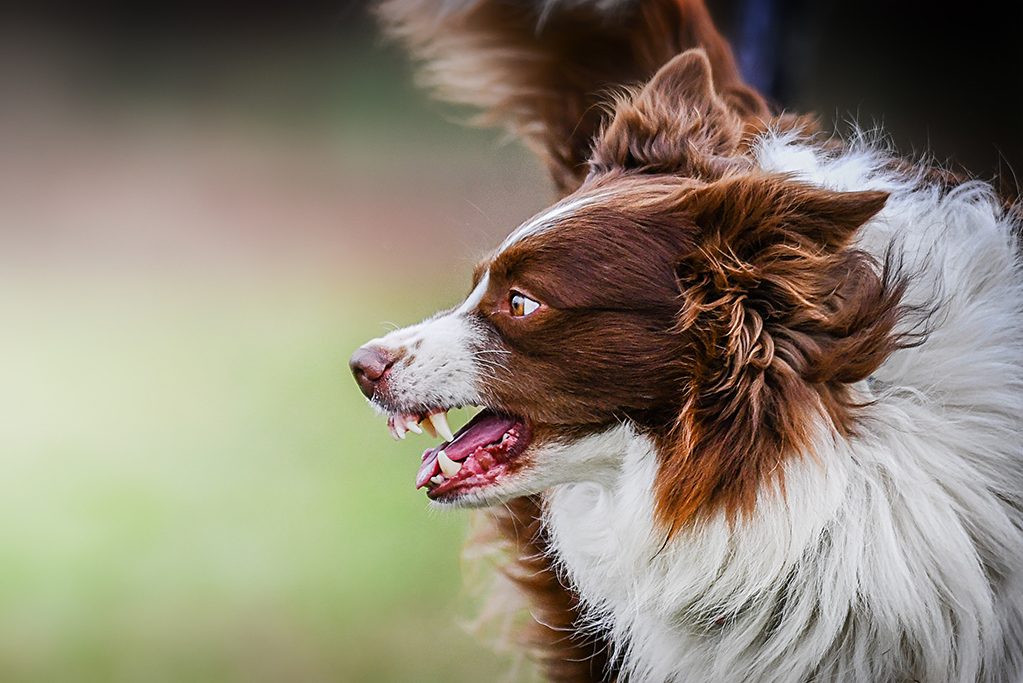
The answer to this is to ask for help as soon as the border collie behaviour problems begin. There are 3 key things that border collie owners need to remember:
- Border collies learn much more quickly than most other breeds.
- A bored border collie will find things to do, usually, things that you don’t want them to do.
- The longer a dog practises a behaviour, the more likely it is to become a habit.
I’ve put the last point in bold because this is often something that people don’t know unless they’ve been on a dog training course that goes into the theory behind dog training. As a very rough rule of thumb, the amount of time the dog has been practising the behaviour is the amount of time you will need to set aside for resolving the behaviour problem.
AND STOPPING PROBLEM BEHAVIOURS IS MORE COSTLY AND TIME-CONSUMING THAN PREVENTING THEM IN THE FIRST PLACE.
As soon as your collie puppy starts to demonstrate any of the following behaviours, immediately ensure that they aren’t able to practise the behaviour and, if you can’t resolve the issue yourself, get in touch with a trainer or behaviourist who can help.
Behaviours that can turn into issues with border collie puppies include:
- Barking at strangers
- Reacting in any way to vehicles (barking, lunging, lying down and freezing, stalking etc)
- Barking and lunging at other dogs
- Reacting fearfully around other dogs or people, including children
- Chasing shadows, lights, reflections
This list is not exhaustive so if your collie is doing something else that you don’t feel you can live with long term, or you feel is not good welfare for the dog, then please ask for help asap, preferably from someone that specialises in border collies. If you can’t get in touch with someone straight away, then try and ensure the dog is given a clean break from being able to practise the behaviour.
For instance…
If he’s started to react in any way towards cars, don’t walk him where he will see cars, particularly not where he is close to them. If you can’t avoid them completely, walk when the roads are quieter, such as last thing at night or first thing in the morning and get in touch with a trainer asap.
If he has started reacting fearfully towards strangers, get in touch with a trainer or behaviourist straight away for advice. All dogs go through certain fear periods somewhere between the ages of 8 and 12 weeks, and again anywhere between 4 months and 14 months. It’s possible your dog could just be experiencing a fear period but it’s best that you know how to handle this. Don’t force them to meet strangers or even get people to hand feed them treats. There are certain ways of doing things that will make things much easier for your puppy and prevent the fear from becoming a major issue for you and your dog. The same applies to fear or aggression towards other dogs. Please ask if you’re not sure how to handle it. If you act quickly we can ensure that we sort the issue before it even becomes a major problem.
A quick consultation is best
A quick consultation with me would only cost you £45 and could end up saving you behaviourist fees of anywhere up to £500. It’s an investment in the future of your puppy and your family! I can help with puppies of any breed, not just collies, so if you’re wondering if your issue counts as a problem, just get in touch and ask and I can let you know!
Helping people with border collie puppies to bring their dogs up to be happy, loving and able to cope with life is my main reason for setting up PupStart. I would MUCH rather people pay me less to sort out issues and stop them from becoming border collie behaviour problems than have to charge a lot more to sort out an issue that has already become a habit. Please contact us if you’re in any doubt.


I have 3 dogs in my home with my Border Collie, Zoey just about 1 yo. She had suddenly (last 3 days) started acting aggressively towards my GSD and Golden. She was a rescue puppy and they have been playing fine for the last 7 months. It seems she is trying to herd them. I have a vet consult in the morning for her spay schedule and looking for a local behaviorist. She has been through puppy beginner to passing CGC just a month ago.
Hi Nina, sorry for the delay in replying to this – you are probably already sorted. However, if a dog suddenly starts to become aggressive towards your other dog(s) then it is often due to an illness in one of the dogs. For some reason, a dog being illcan cause another dog in the same household to suddenly become aggressive towards them. Hopefully this isn’t the case in this example.
The most important thing is to prevent her from practising the behaivour, as the more a dog practises a behaivour, the more they will continue to practise it. So keep her on a long line, and restrain her from the behaviour whenever it occurs for now. And find a behaviourist who can help.